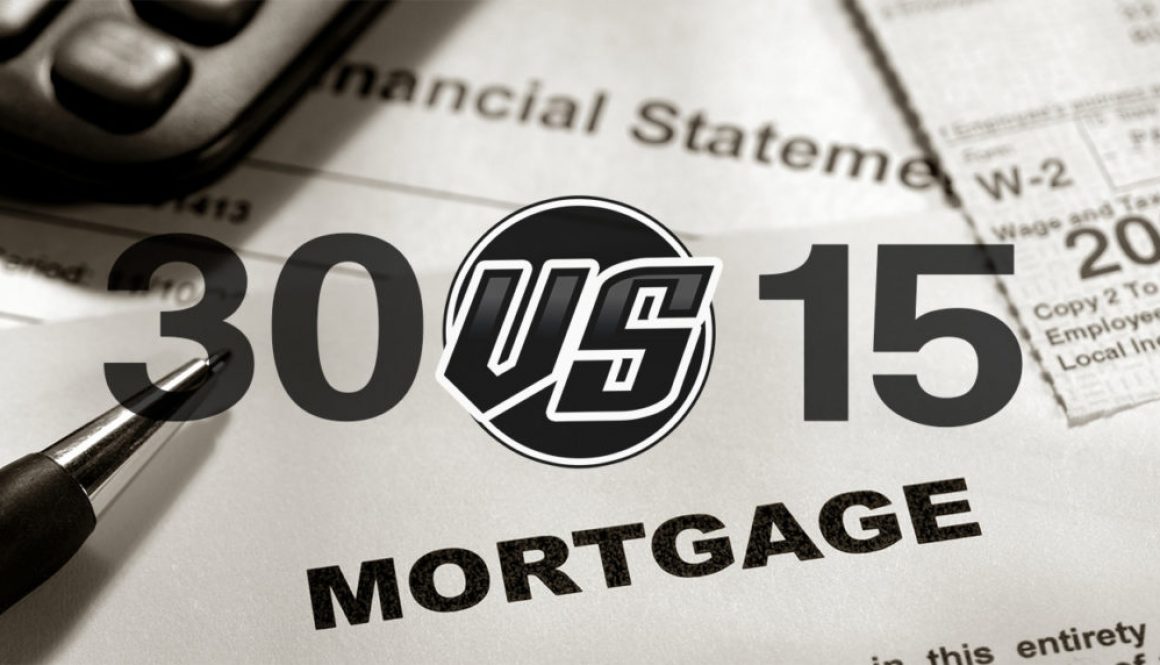
Many prospective homeowners and real estate investors often wonder if it’s better to have a 30-year mortgage with a lower monthly payment or a 15-year mortgage that ensures you pay the loan off quicker.
This really does depend.
If you were to ask yourself that question, rephrase it to express a goal. This will help you to find the answer that will help both investors and homeowners determine what kind of loan is better for them.
When it comes to answering this question, ask yourself the question in this way: If the goal is to get the highest rate of return, is a 30-year-old mortgage or 15-year-old mortgage better? The answer is simple:
You need a 30-year-old mortgage that includes very low rates. Why is that?
Why Should You Consider A 30-Year Mortgage Over A 15-Year One?
You may wonder what the logic is to go with a 30-year mortgage over a 15-year one since a 15-year mortgage means the home is paid off faster. Well, here’s what you should understand:
- Property prices and rents are bound to rise with inflation – roughly around four percent a year.
- Interest rates run around 3.5 percent.
- Maintenance expenses could run around 50 percent of the asking rent.
- Rent is 1/10th the property value.
- The stock market could generate an 11.5 percent yearly return.
These may be assumptions you don’t agree with, and there could be changes to them that could end up favoring the 15-year loan option. However, these are rare, and the idea is to make a profit. These are not assumptions:
Interest rates will favor the 15-year loans, which are generally lower.
The interest on these loans is tax-deductible, which usually favors the 30-year loans.
There are three scenarios to keep in mind:
- Purchase property at 20 percent down on a 15-year loan
- Purchase property at 20 percent down on a 30-year loan
- Purchase the property outright, with no loan
Here’s what you have to understand:
If you purchase real estate with cash, it tends to do worse than the stock market. With leverage, the average returns start to outdo the returns stocks can provide. This is usually seen in the first year with both types of loans generating high returns for the investors. Why? The property is leveraged during this time.
Why?
Leverage will boost returns. If you purchase a home for $100,000 using cash, it boosts the value by $10,000. Thus, you made 10 percent ROI. If you purchase a home for $100,000 with a $20,000 down payment and there is a $10,000 value increase. Thus, you’ve made 50 percent on your initial investment.
As the loan is paid down, the property will rise in its value due to inflation and the leverage will drop. For instance, in 10 years, you would have paid 25 percent of your $80,000 loan ($100,000 – $20,000), which means the balance left remaining on the loan is $60,000. The property has risen in value to $120,000, which means the leverage is 50 percent.
With a drop in leverage, the equity return also drops.
With the first situation, the equity return is less for the lower leveraged real estate. You’ll pay the loan down quicker on a 15-year loan but with less average every year. The return on equity, however, is more on a 30-year loan.
An equity return for an all-cash investor will rise over time. Once the loan is paid off for a 15-year investor, the returns are higher.
The situation assumes there is enough cash flow getting invested back into the stock market. A 15-year-old loan investor generates less cash flow than a 30-year-old loan or all cash investors for 15 years and who cannot invest the money back.
The cash flow reinvestment separates a 30-year investor from the 15-year investor. The 30-year investor has lower payments and produces more upfront cash flow and then be able to reinvest the money in another investment. A 30-year investor has more net worth and cash flow. The money invested back compounds into a portfolio that increases with a stock market and generates with regular dividends.
As time goes on, the effects of higher cash flow and leverage mean a 30-year loan investor sees the most benefits.
What Does It All Mean?
Looking at the benefits and each situation, does this mean a 30-year loan is better for you? Again, the answer will depend on your particular situation. There are several reasons why a 15-year loan would be better than a 30-year one and vice versa. If you’d like to be debt-free faster, a 15-year loan is what you’re after. If you don’t have the self-control to reinvest your money, it may be best to go with a 15-year loan.
How you handle your personal finances is totally up to you.
If the goal is to pick a financing that generates a lot of wealth over time, then you’ll want a 30-year loan. Of course, a 30-year loan means you could still deleverage where you no longer make a really good return generated by the stocks.
It’s extremely important that you look back at your goals every couple of years to ensure you reinvest your money and purchase more property. If you’re content with the money you’re making currently, be aware that you could see the possibility of decreasing the returns.
Memphis Buy And Hold is specializing in locating, purchasing, renovating and managing single-family and multi-unit properties and possesses from 2007 up to the present of experience in real estate investing and property management in the Memphis and Nashville markets.
- Memphis Property Management
- Memphis Turnkey Investment Properties
- DCC Rentals LLC
Discover more from Memphis Buy And Hold
Subscribe to get the latest posts sent to your email.


